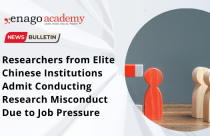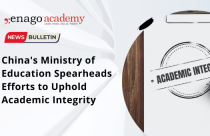U.S. Authorities Target Chinese Cancer Scientists for Espionage

You can also listen to this article as an audio recording.
Research in China has grown exponentially over the past two decades. The USD 9.1 billion investment that China made available for R&D in 1991 is paying off. This is evident by the massive increase in scientific publications produced by China, which recently overtook the U.S. to become the world’s largest producer of scientific articles. One such growing field is oncology, where scientists are making huge progress in cancer research.
The worldwide fight against cancer is part of the U.S. National Cancer Institute’s Moonshot program, whose aim is to “accelerate cancer research.” However, this good cause is under threat because U.S. authorities think that scientists of Chinese ethnicity are leaking sensitive information to China.
U.S. Authorities Make Chinese Scientists Feel Unwelcome
Chinese immigrants feel the U.S. is becoming a hostile environment. The U.S. National Institutes of Health (NIH) and the FBI are apparently working together on what they believe is a threat to U.S. intellectual property. They are suspicious of scientists – specifically of Chinese ethnicity, even if they are American citizens – secretly helping cancer researchers in China by divulging proprietary information. Xifeng Wu is one of these accused scientists. Apparently, she collaborated with researchers in China working on cancer research, screening programs, and clinical trials.
However, collaboration is key to advancing research. In academia, you must present your research at conferences, network, and form collaborations with other research groups. Sharing ideas and publishing your work in collaboration with others enables you to share expertise, equipment, and resources. At the end of the day your work is published for all to see, to further advance the field. This sounds good for research, doesn’t it?
But the NIH is concerned that researchers have violated some of the agency’s rules. Some of the confidentiality violations included sharing grant proposals and not disclosing foreign funding and affiliations. They also added that they are not only targeting scientists of Chinese ethnicity, but also looking at violations by researchers of other nationalities.
Chinese Scientists Lose Jobs
Oncology researchers are one of the groups on the watchlist. It seems the U.S. is concerned that they are sharing U.S cancer cure secrets with China and thereby letting China surpass U.S. in cancer research.
MD Anderson investigated five researchers of Asian ethnicity after receiving letters from the NIH regarding concerns of espionage. One of these researchers was found compliant to the rules and regulations, two chose to resign, and another is being dismissed. The other scientist is still under investigation. It turns out that four of these five accused were guilty of sharing grant applications containing confidential information.
MD Anderson is not the only research institution to receive notifications from the NIH. Another eight scientists are under investigation at three other research institutions.
An ex-MD Anderson employee, Xifeng Wu, had done great work in cancer research. She is an award-wining epidemiologist and her research focus is in cancer prevention. For example, Wu and her team showed that Mexican Americans who sleep less than six hours per night are at a higher risk of getting cancer than those that sleep more. In addition, they showed that eating charred meat increases a person’s risk of kidney cancer. Wu attributes her success to collaborating with other scientists around the world. Moreover, her employer, the MD Anderson Cancer Center encouraged her for the collaboration.
Now Wu has been accused of secretly aiding cancer research in China. However, Wu says her work is in cancer prevention, not patentable drugs. She has since resigned from her job at MD Anderson and taken up a position as dean of a public health school in Shanghai, leaving her family behind in the U.S.
Thousand Talents Plan
Historically, China has lost many leading researchers to other countries. They now have a plan, called the “Thousand Talents Plan”, to bring them back. The Department of Energy no longer allows their employees to take part in these kinds of programs if they are run by what they call “sensitive” countries.
For scientists, China is becoming a place of scientific opportunity. The boost in funding and new hiring initiatives are attractive alternatives to the hostile environment that the U.S. is becoming. For many it is a chance to start a new lab and make a difference in their field of study.
Intellectual Property War Stifles Research
A consequence of this cold war is that Chinese scientists are struggling to get visas to attend conferences in the U.S. For example, Jian-Wei Pan (a quantum physicist) was due to receive the prestigious Newcomb Cleveland Prize for publishing an exceptional paper in Science. He did not get a visa in time and was unable to attend the American Association for the Advancement of Science (AAAS) meeting. Visa restrictions will make U.S–China collaborations very difficult and as mentioned above, collaborations are important for advancing research.
We understand that countries need to protect their intellectual property and build their economy. However, they cannot simply investigate offenders purely because of their ethnicity.
University administrators are trying to work out how they can deal with this espionage issue, put policies in place, and police them. Does this mean recruitment – and therefore projects – will be placed on hold until they have worked out a plan?
At the end of the day, the political tensions between the U.S. and China are affecting valuable research. Research institutions understand that they need to address national security concerns however, they also need to safeguard federally-funded research.
This U.S. xenophobia may save the U.S from intellectual property infringements. However, this blanket approach will probably cost them in leading researchers. Scientists wishing to gain overseas experience and bring a new dimension to a project will go where they are welcome. Therefore, the economic cold war between the U.S. and China will stunt cancer cure research and scientific research as a whole.
Do you think the U.S. is justified in placing special focus on Chinese researchers? Please let us know your thoughts in the comments section below.









